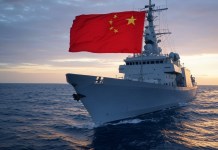US President Donald Trump is in India but experts in New Delhi are increasingly apprehensive about US-Taliban Peace Deal. Not that India is against the Afghan peace process, however, officials in New Delhi are distressed by the role of arch-foe – Pakistan.
China, Pakistan Heavily Criticised At UN For Persecution Of Religious Minorities
The US and the Taliban are on the verge of signing a historic agreement aimed at ending the US’ longest war, potentially fulfilling one of Donald Trump’s key commitments. The forthcoming peace deal has not only backed Pakistan’s Afghan policy but also justified the country’s long-standing policy of not taking action against the Taliban and the Haqqani network.
“Pakistan’s stance has proved correct. The agreement has also endorsed Pakistan’s Afghan policy. Pakistan stands vindicated today,” said Rahimullah Yusufzai, a senior journalist and expert on Taliban affairs. Yusufzai – best known for having interviewed Osama bin Laden and Mullah Omar – said that the peace deal was an astonishing move but a significant development.
“It is impossible to eliminate the Taliban and the Haqqanis and that is why the path of negotiations has been chosen,” he said, expressing his views in Express News
India To Become Largest Operator Of S-400 Missiles Outside Russia
“Pakistan welcomed the announcement regarding the U.S.-Taliban agreement,” Pakistan’s Foreign Ministry said in a statement Friday. “We hope the Afghan parties would now seize this historic opportunity and work out a comprehensive and inclusive political settlement for long-lasting peace and stability in Afghanistan and the region.”
The Pentagon hasn’t said whether the United States agreed to withdraw all troops, but officials have talked about keeping a counterterrorism force there for the time being. The 12,000 or so U.S. troops in Afghanistan right now have two missions: helping Afghan forces fight the Taliban and conducting counterterrorism operations against al Qaeda and ISIS.
Defence officials, including Defense Secretary Mark Esper, have said they believe 8,600 troops are adequate to carry on the counterterrorism operations. Even getting to that number, Esper has said, will happen “over time.”
Baloch Liberation Army Attcks Chinese Convoy in Pakistan; Many Feared Dead
Still, the Taliban continues to emphasize the end result of the peace process be a full withdrawal, with its statement Friday saying the reduction in violence deal will “finally lay the foundation for peace across the country with the departure of all foreign forces.”
Critics of Donald Trump have long said the most difficult part will be intra-Afghan talks. It’s also the most critical part, they maintain, because peace won’t happen without political reconciliation in Afghanistan.
The Taliban has previously opposed talks with the Afghan government, which it sees as a puppet of Washington. Political turbulence within the Afghan government could also hamper talks by giving Afghan President Ashraf Ghani a weakened hand.
Ghani was declared the winner of the September 2019 presidential elections this past week. But he got only 50.64 percent of the vote, just a bit above the required 50 percent required to win. And his principal rival, Abdullah Abdullah, is still contradicting the election results, claiming victory and vouching to form a government of his own.
India is expectedly worried. New Delhi firstly wanted the US to stay and keep the Taliban out at any cost which is not happening now. Pakistan, on the other hand, has left no stone unturned to ensure the Taliban is back in power and Indian influence in their backyard is reduced to a minimal level.
The next step should be interesting when the intra-Afghan dialogue commences where the Pakistan-backed Taliban would negotiate with India-backed Kabul government. There’s little New Delhi can do except to weather the storm. India has neither the military capability nor the diplomatic influence to stop Pakistan from officially gaining a foothold in the tumultuous region.
OpEd – NTicku. Views Personel




